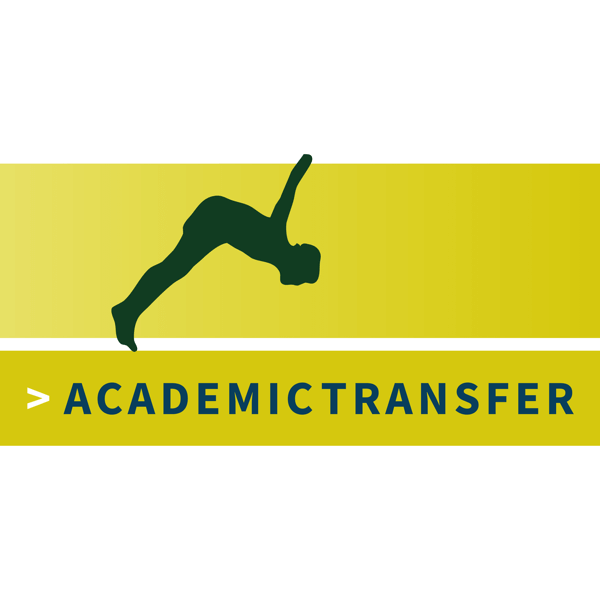
PhD Talk for AcademicTransfer: PhD students with a side hustle
This post is part of the series PhD Talk for AcademicTransfer: posts written for the Dutch academic career network AcademicTransfer, your go-to resource for all research positions in the Netherlands.
These posts are sponsored by AcademicTransfer, and tailored to those of you interested in pursuing a research position in the Netherlands.
If these posts raise your interest in working as a researcher in the Netherlands, even better – and feel free to fire away any questions you might have on this topic!
In the Netherlands, many PhD candidates are university employees with a salary. Some students may be on a scholarship from their home country, or have another arrangement to do their PhD. For these students, as well as those on the regular PhD candidate salary, a bit of extra income may be necessary.
We see more and more that PhD candidates have an extra source of income to avoid student debt, to get a better income, or to temporarily shoulder heavier bills. One such student we interviewed on the PhD Talk podcast is Kaelyn Apple, a PhD student in African American history at Yale, owner of Accepted Consulting, and YouTuber at The Redhead Academic. That sounds like quite a lot of extra work, but it often also results in more financial freedom.
I remember that as I was nearing the end of my PhD, I also had set myself the target of making some additional money on the side every month. I did not have a side business, but I looked for odd jobs and opportunities here and there to get some extra income. Based on my own experience, as well as what I’ve seen others do, here are some ideas of side hustles and extra sources of income you may want to consider:
- Paid writing: During your PhD, you learn how to write clearly. You may as well use this skill to land paid writing work. You can think about writing for a popular magazine in your field, blogging for a fee on a larger platform, or writing contents for a professional organization. Don’t be afraid to pitch ideas to different platforms – you’ll have to send out a fair amount of pitches, but may end up being successful.
- Speaking gigs: Along the same lines, you can think about topics you can speak about from your expertise and practice delivering a talk that is accessible to a broad public. Once you have that skill, you can consider pitching your talk to different platforms. Again, just as for paid writing, you will need to have some patience here, and send out many pitches before landing a gig.
- Translation work: If you speak multiple languages, you may be the right person to assist translators with technical translations in your field. If you have a strong command of two languages or more, you can even think about offering services of technical translations.
- Copyediting work: If your university has a publishing house, you may be able to do freelance work for them, as a copyeditor, as an index developer, or anything else (such as for example managing social media accounts). Copyediting typically gets outsourced, so you may be able to get some additional work through that venue.
- Additional teaching: You could see if you can get paid more if you assist with the teaching of an additional course in your university. Besides your university, you could think about teaching professional courses for professional organizations, or teaching an intensive course in your home country (if you are an international PhD student).
- Selling things you no longer use: What’s better than getting organized and getting money for it at the same time? You can look through your stuff and see if there are items that are still good enough to be sold online. You get rid of your clutter, and someone else gets a nice item. You can also help family and relatives with their decluttering and get a certain commission on the sales if you handle it all for them.
- Selling crafts: If you like doing crafts or making art to get your creative juices flowing, you may want to set up your little Etsy or Instagram shop to sell your crafts or art.
- Online courses: If additional teaching may be of your interest, then teaching online courses can be a solution as well. You can teach others a skill that you have, you can teach professionals in your field an in-depth course related to your research, or you can focus on a topic not directly related to your research but that you are deeply interested in.
- Social media income: Podcasters and YouTubers can make an exxtra revenue from advertisements. If you have a large social media following, you may want to see if you want to take this to the next level and create an associated income stream. If you want to keep your social media just for clowning around like me, then I totally understand that too.
- Picking up odd jobs: If you’re in a pinch, any odd job can help out. From working in restaurants, over babysitting, to doing groceries for another person, there are many odd jobs out there that can help you get some extra income. The caveat here is that these can take up a lot of extra time, and don’t help you build career capital.
- Start your own company: Do you have an itch to develop something of your own? Then starting your own company can be a great way. You can offer professional services, offer services to other students, or focus on something completely different, such as importing goods from your home country and selling these delicacies locally.
- Assist companies in getting contracts: If you are an international PhD student, you may be the right person to help companies from your home country set up contacts and potentially get contracts in the country where you are getting your PhD.




[…] I recently wrote about PhD candidate with a side hustle, I received a follow-up […]